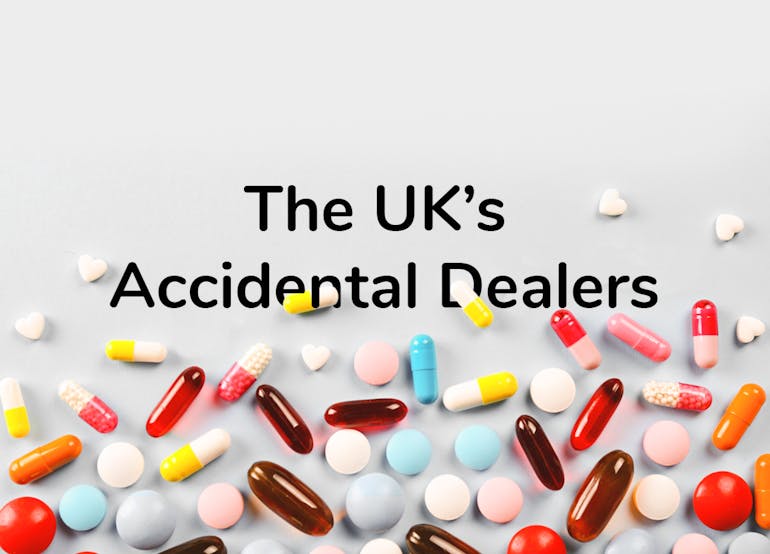The UK’s Accidental Dealers
Reviewed and fact-checked by Giulia Guerrini, Superintendent Pharmacist. Read our editorial policy to see how we create informative, accurate content.
Have you heard of ‘accidental dealers’? Well… you might even be one. Here at medino, we’ve conducted research into how many people share different types of medication, prescribed or over the counter, to others. We’ve surveyed more than 2,400 UK adults to uncover how many people are taking medications that they haven’t obtained from the pharmacy or their GP themselves.
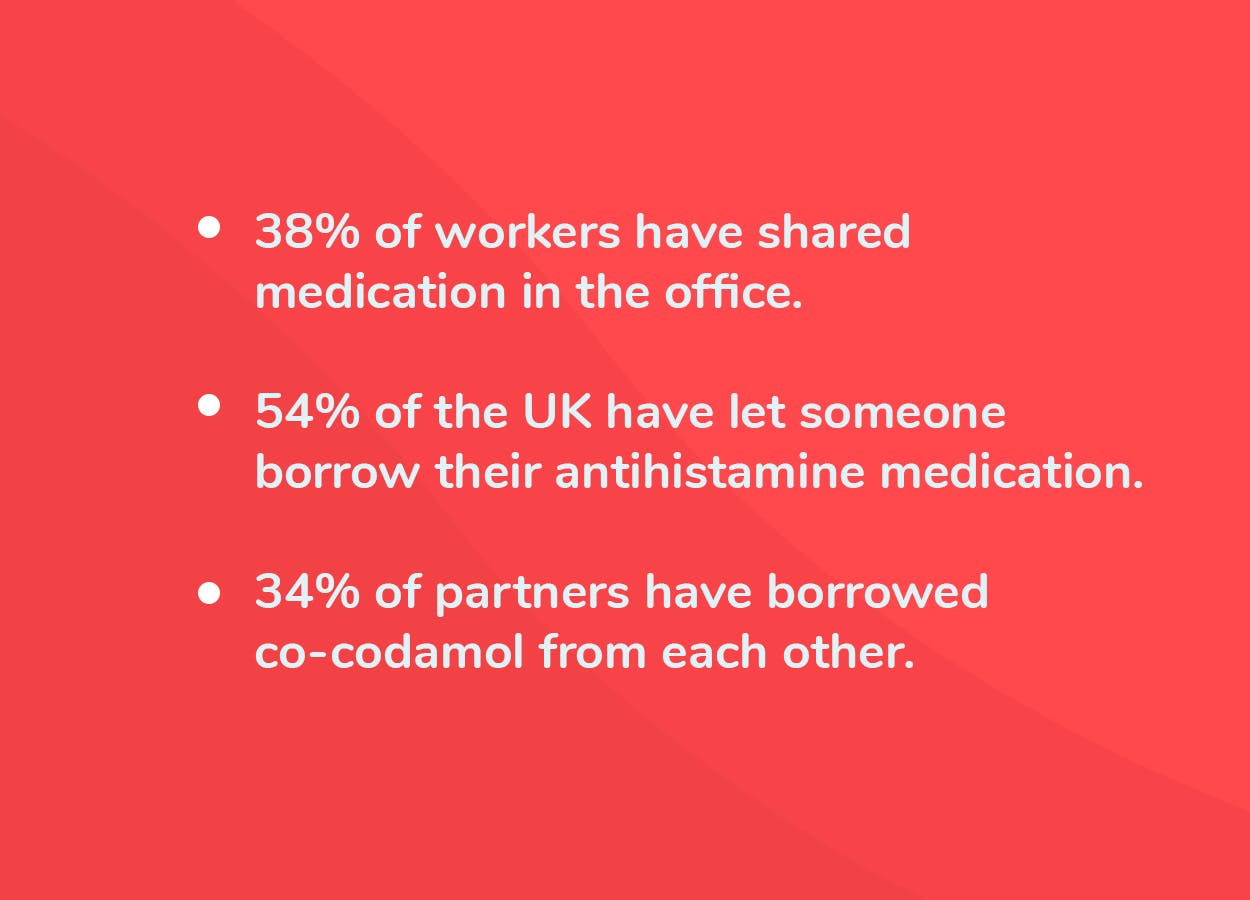
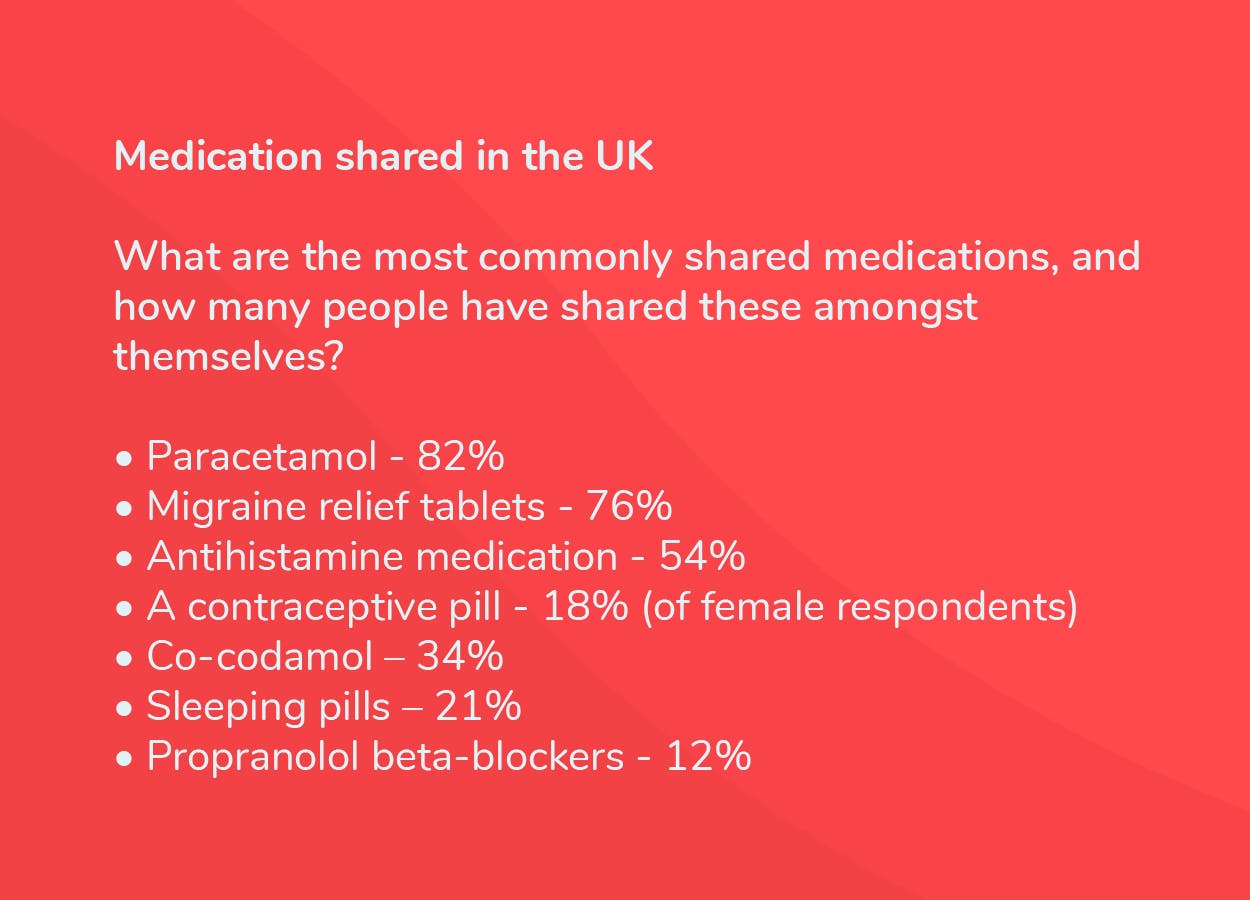
Paul* (they/them) used to take strong pain medication from peers as they weren’t able to get it from their doctor.
Paul has arthritis and suffers with extreme pain on a daily basis; he said that a few years ago, the pain was making him feel completely hopeless and he just wanted to do whatever it would take to get it to subside.
After struggling to get a prescription for codeine from the doctor, Paul started to borrow the medication from peers. At first, Paul seemed fine; no strange side effects. Until all of a sudden they started to experience stomach pains, which resulted in a lot of time spent on the toilet. Soon after the first lot of side effects, Paul started getting terrible headaches and found they had developed an ongoing lack of motivation to do even simple, everyday tasks.
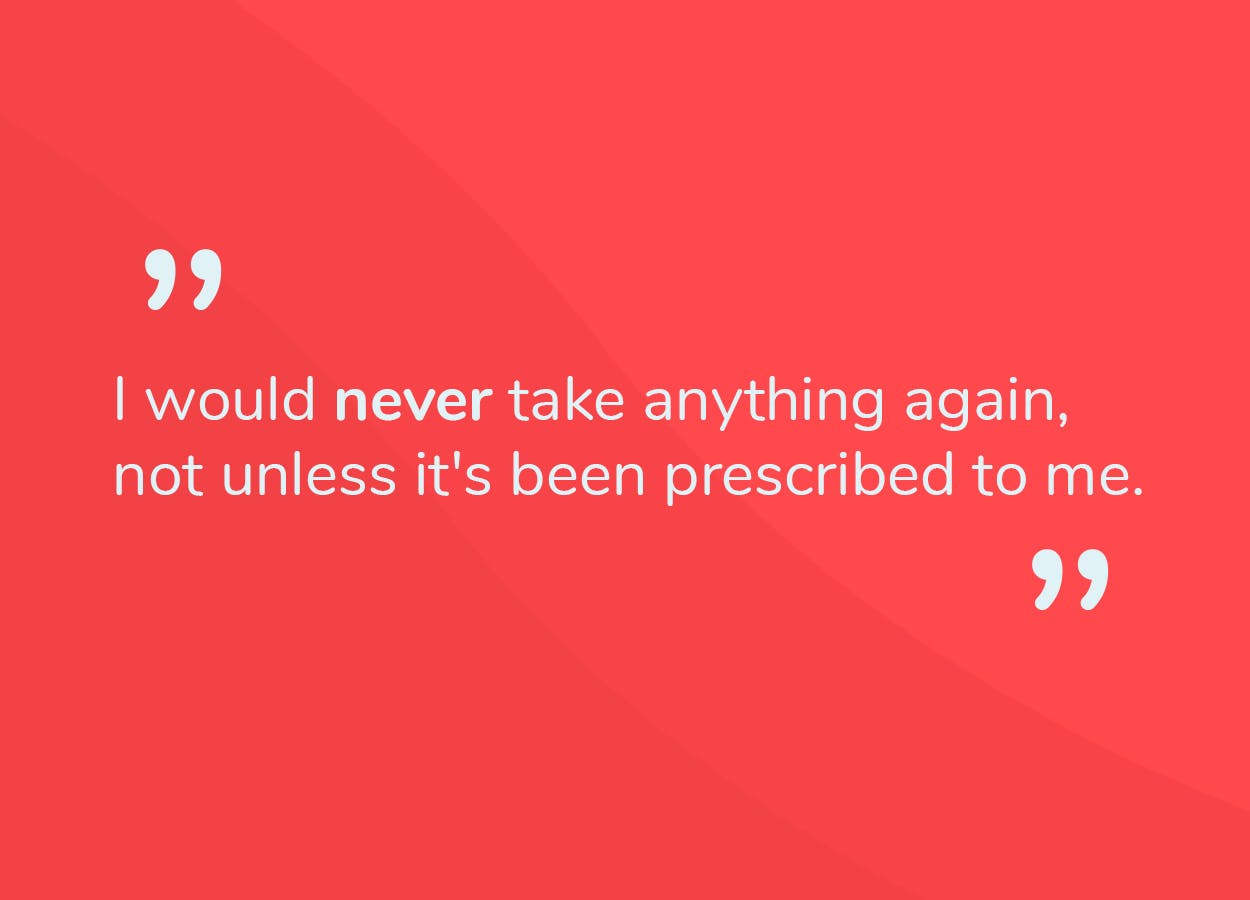
Paul said: "Although borrowing medication took an edge off of my pain, it caused so many other issues I hadn’t thought of. I felt hopeless at the time and did what it took to counteract the pain. But having suffered with the side-effects, I would never take anything again – not unless it’s been prescribed to me."
*Paul has had his name changed for full anonymity.
We teamed up with Chris Salmon, Operations Director for legal services provider Quittance to iron out the legalities behind prescription medication.
Chris has confirmed that although a prescription isn’t a legal contract, it is a legal document – meaning that altering or faking a prescription would fall under the criminal act under the Forgery and Counterfeiting Act 1981.
When it comes to the legal implications of giving someone else your prescribed medication, Chris says that if the drug is classified under the Misuse of Drugs Act 1971 and the 2016 Psychoactive Substances Act, you can be charged with the supply of illegal drugs; the same charge as you would get for supplying recreational drugs. If it’s not on any of these lists then you could be charged with supplying prescription drugs without a licence, which falls under The Medicines Act 1968. Punishments for this are lighter, but it’s still an offence.
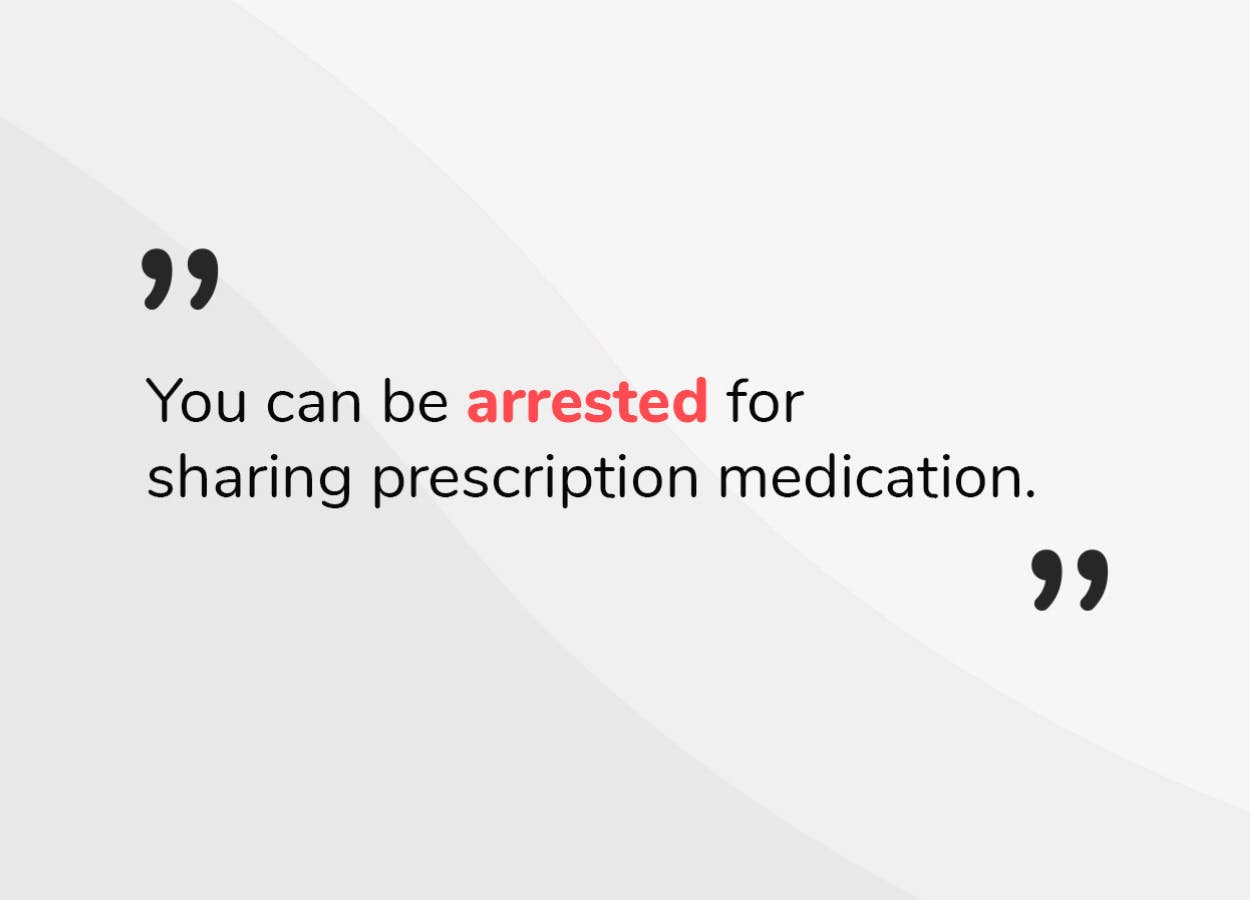
Although it doesn’t happen often, Chris confirms that you can get arrested for sharing your prescription medication. Arrests happen if the person you are selling to suffers serious harm or death, and the drugs in question are cited as a contributing factor to the harm or death. In those cases you can be charged with Grievous Bodily Harm (in the case of serious harm), or Constructive Manslaughter (in the case of someone dying).
If you’re found to be taking prescription medication that hasn’t been prescribed to you, you may be at risk of arrest. Chris states that if the drug in question falls under the Misuse of Drugs Act 1971 or the 2016 Psychoactive Substances Act then possession of these drugs is a criminal offence. Your punishment depends on the classification of the drug in question (Class A, B or C). If the medication is not classified under these two acts then there is no law prohibiting you from possessing it. The actual ingestion of any drug is not illegal, only its possession.
Giulia Guerrini, our Superintendant Pharmacist, says:
"Always check the medication package of what you are borrowing, even if you trust the person giving it to you; and remember that you may not be aware of any unexpected side effects which you could experience – even if the person you are borrowing from doesn’t. Some paracetamol preparations can contain other ingredients like codeine or caffeine, which may not work for you. Most medications also contain lactose, which some people are allergic to, so it's always good to check the inactive ingredients. If you haven’t taken a certain medication before, it's best to avoid taking some from a friend and speak to your doctor or a pharmacist first.
Here at medino, we can make it so much easier to get your prescription medication to you, so you don’t have to worry about forgetting it. You can simply nominate us as your pharmacy, meaning that we automatically dispense and dispatch any medication prescribed to you by your GP – either new ones or when it’s time for a refill – meaning you won’t have to be without when you need it. If your medication is the over-the-counter kind (and you don’t need a prescription), you can just order it directly from our website. Our pharmacists will quickly and thoroughly check it’s right for you, and we can even get your medication to you tomorrow with our fast delivery!"
